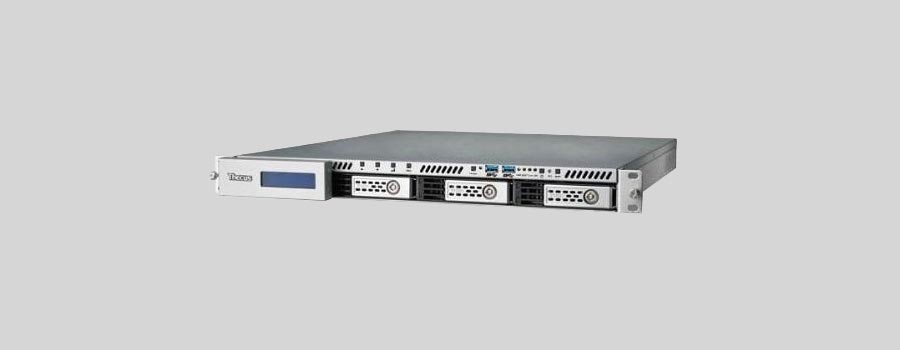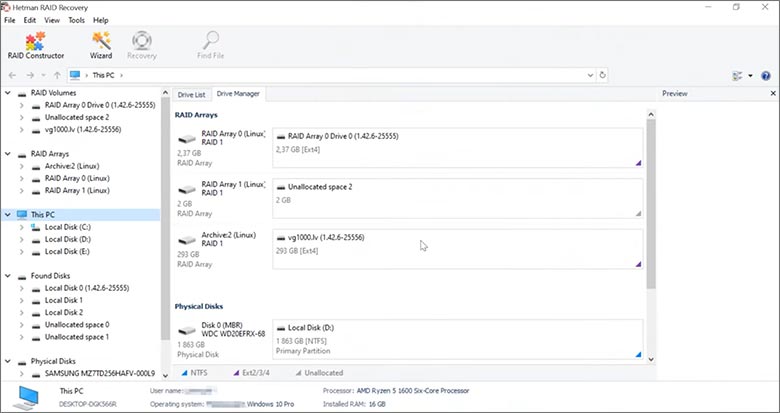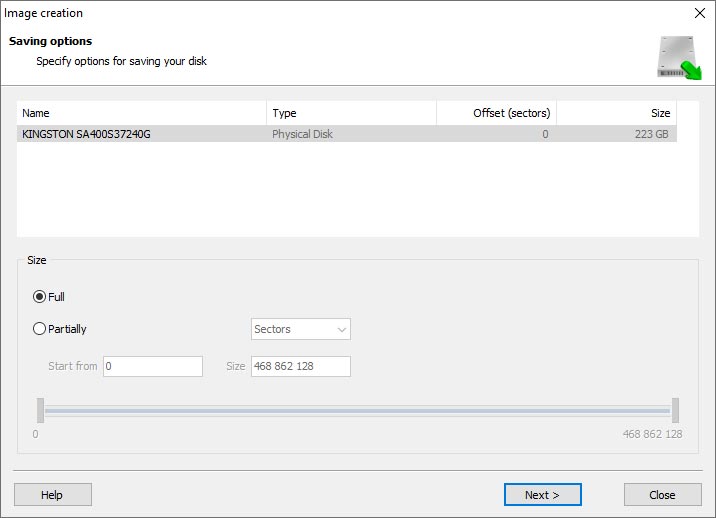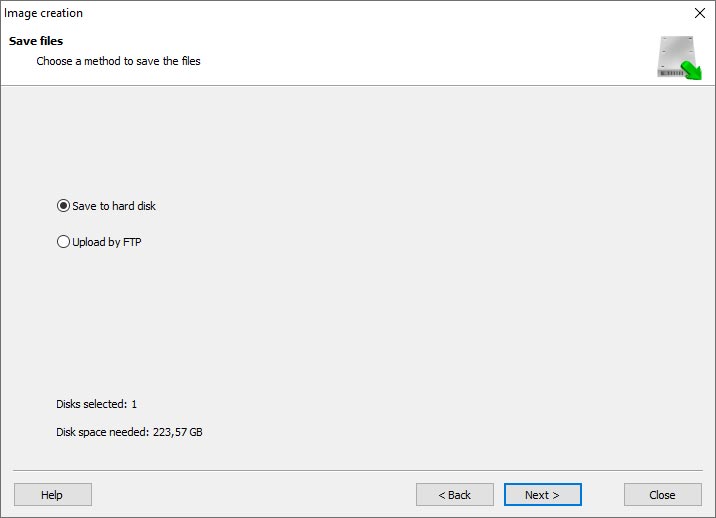
- Why Regular Data Recovery Tools Can’t Restore Files from RAID
- Key Information About the NAS Thecus N4510U
- How to Remove Hard Disks from Your NAS and Connect Them to a PC
Why Regular Data Recovery Tools Can’t Restore Files from RAID
Conventional hard drives store user data by writing it sequentially across the disk surface, which means an entire file is typically located on a single drive. In contrast, when data is written to a RAID array, each file is split into multiple fragments. These fragments are then distributed and written in sequence across all the drives in the array. Depending on the configuration, fragment sizes can range from 2 KB to 2 MB, so every file is physically stored across several disks at once.
This approach significantly increases read and write performance — after all, writing two halves of a 1 GB file to two drives simultaneously is much faster than writing the full 1 GB to a single disk. However, this same mechanism makes file recovery far more complex.
Different RAID levels use different methods to distribute and protect data. On top of that, manufacturers like Thecus often add their own proprietary structures and variations. As a result, data can be written to disks in many different formats, and each requires a specific approach during recovery.
How can data redundancy techniques such as mirroring or replication enhance data availability and protect against loss on NAS Thecus N4510U devices?
Data redundancy techniques such as mirroring or replication can enhance data availability and protect against loss on NAS Thecus N4510U devices in the following ways:
- Mirroring: Mirroring, also known as RAID 1, involves creating an exact copy (mirror) of data on multiple drives. In the case of Thecus N4510U, it supports RAID 1 configuration. If one drive fails, the mirrored drive can take over seamlessly, ensuring uninterrupted access to data. This redundancy technique enhances data availability as the system can continue to function even if one drive fails.
- Replication: Replication involves creating multiple copies of data on different NAS devices or locations. Thecus N4510U supports various replication methods such as Rsync, real-time remote replication (RTRR), and cloud backup. By replicating data to another NAS device or off-site location, it provides an additional layer of protection against data loss. If one NAS device fails, the replicated data can be accessed from the backup location, ensuring data availability.
- Hot-Swappable Drives: The Thecus N4510U supports hot-swappable drives, which means that failed drives can be replaced without shutting down the system. This feature enhances data availability by reducing downtime during drive replacement and ensuring continuous access to data.
- Data Recovery: In the event of data loss or corruption, Thecus N4510U devices provide data recovery mechanisms. These include features like snapshot backup, which allows you to restore data to a previous point in time, and data recovery software like Thecus Data Guard, which helps recover lost or accidentally deleted files.
- High Availability (HA): The Thecus N4510U supports High Availability (HA) clustering, where two identical NAS devices are connected to provide redundancy. If one NAS fails, the other takes over seamlessly, ensuring uninterrupted access to data. This redundancy technique enhances data availability by eliminating single points of failure.
Overall, by implementing data redundancy techniques like mirroring, replication, hot-swappable drives, data recovery mechanisms, and High Availability clustering, Thecus N4510U devices can enhance data availability, protect against loss, and ensure continuous access to critical data.
How to Remove Hard Disks from Your NAS and Connect Them to a PC
Although the NAS N4510U can be accessed over the network, you still need to remove its hard disks and connect them directly to a Windows PC. Only then can the recovery software properly scan and analyze the drives. Follow these steps:
-
Power off the NAS and disconnect it from the power source.
WARNING! Before removing any drives, carefully read the device manual. Improper actions may damage both the NAS enclosure and the hard disks in the RAID array.
-
Remove the hard disks one by one, gently sliding each drive out of its slot. Remember that hard disks are highly sensitive: any impact or drop can cause serious physical damage.
-
Label each hard disk according to its position inside the NAS. The order of the drives is crucial for correct RAID reconstruction.
-
Connect the drives to your computer. In this video, we explain which ports you can use to connect hard disks and what to do if your PC does not have enough free connectors.
Go to view
Step-by-Step Data Recovery with Hetman RAID Recovery

This program restores data from damaged RAID arrays and is fully compatible with Thecus N4510U. Each hard disk in the array contains technical metadata describing how files were written. When launched, Hetman RAID Recovery analyzes this metadata, automatically reconstructs the damaged array, and provides access to its contents. After that, you can browse the recovered disk and save your files. The program can also restore files that were accidentally deleted from the network drive.

How to recover data from a Thecus
N4510U has 4 HDD slots, and it supports the following array types:
- RAID 0;
- RAID 1;
- RAID 5;
- RAID 6;
- RAID 10;
- JBOD;
NAS supports:
- EXT3;
- EXT4;
- XFS;
How to Safely Recover Data from Disk Images
This utility allows you to create a complete copy of a disk and work with the disk image instead of the physical drive. This approach helps protect your data from:
- Overwriting during the recovery process;
- Additional data loss caused by bad sectors;
- User errors.
To create a disk image, follow these steps:
-
Ensure you have enough free space to store the image. Its size will typically match the size of the original disk.
-
In the main window, select the target disk and choose Tools - Save Disk. You can also select multiple disks if needed.
-
When the Image Creation Wizard opens, select whether you want to save the entire disk or only a specific region. Adjust the settings and click Next.

-
Choose the directory where the image will be saved. You may select any available disk connected to your PC or upload the image via FTP.

Where Are the User’s Files Actually Stored?
The Thecus N4510U network-attached storage keeps OS Linux operating system files on a separate RAID 1 (mirrored) array. Usually, all NAS systems create several volumes on every hard disk, and the first of them takes up to 2 Gb of space. This is where operating system files are stored. Other volumes are united into a RAID array where user’s data is written.
RAID Recovery Software: Detailed Comparison
| Product | Operating system | RAID controller support | Supported file systems | Virtual RAID controller support | Data recovery from damaged RAID | File preview |
|---|---|---|---|---|---|---|
| Hetman RAID Recovery | Windows, Linux, MacOS | Yes, over 100 controllers | FAT, exFAT, NTFS, ReFS, APFS, HFS+, Ext4, Ext3, Ext2, ReiserFS, Btrfs, VMFS, Hikvision, XFS, UFS, ZFS | Yes | Yes | Yes |
| DiskInternals RAID Recovery | Windows | Yes, over 10 controllers | FAT, NTFS, Ext2/3/4, HFS+ | No | Yes | Yes |
| R-Studio | Windows, Mac, Linux | Yes, over 20 controllers | FAT, NTFS, Ext2/3/4, HFS+ | Yes | Yes | Yes |
| UFS Explorer RAID Recovery | Windows, Mac, Linux | Yes, over 100 controllers | FAT, NTFS, Ext2/3/4, HFS+ | Yes | Yes | Yes |
| EaseUS Data Recovery | Windows | Yes, over 20 controllers | FAT, NTFS, Ext2/3/4, HFS+ | No | Yes | Yes |
| ReclaiMe Free RAID Recovery | Windows | Yes, over 100 controllers | FAT, NTFS, Ext2/3/4, HFS+ | Yes | Yes | Yes |




Yes, it is possible to recover data from a NAS device that has been affected by file system corruption or partition errors. However, the success of data recovery depends on the extent of the damage and the actions taken to recover the data.
Here are some steps you can take to attempt data recovery from a NAS device:
Remember, it is always recommended to have a backup of your important data to avoid such situations.